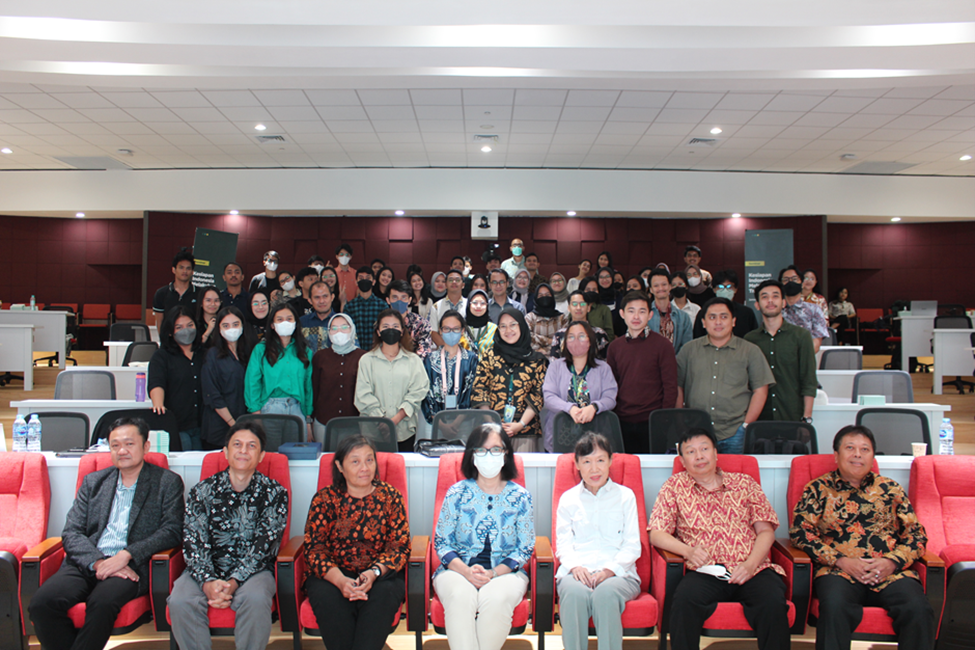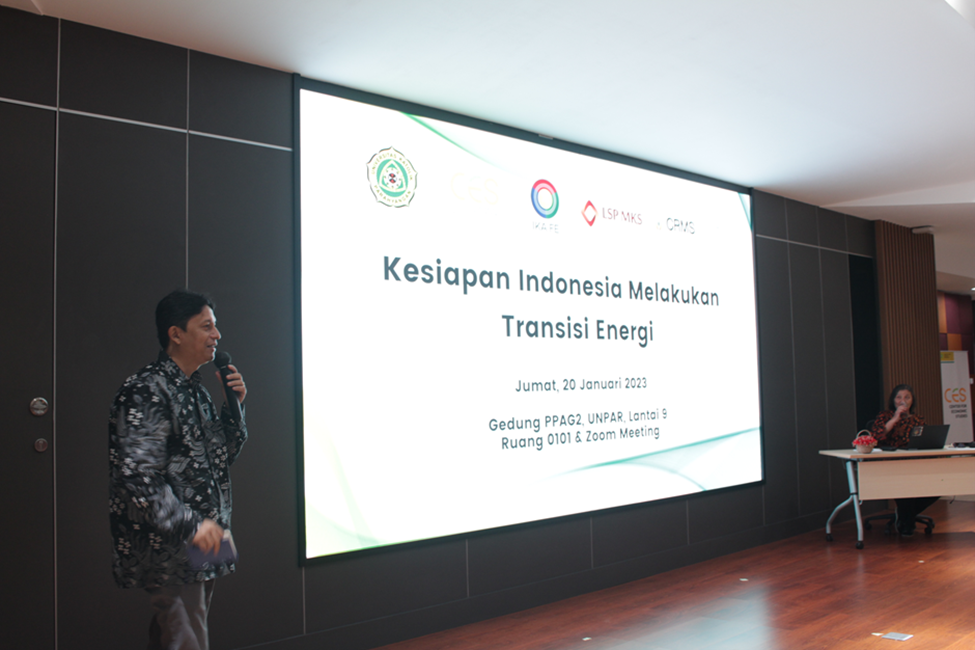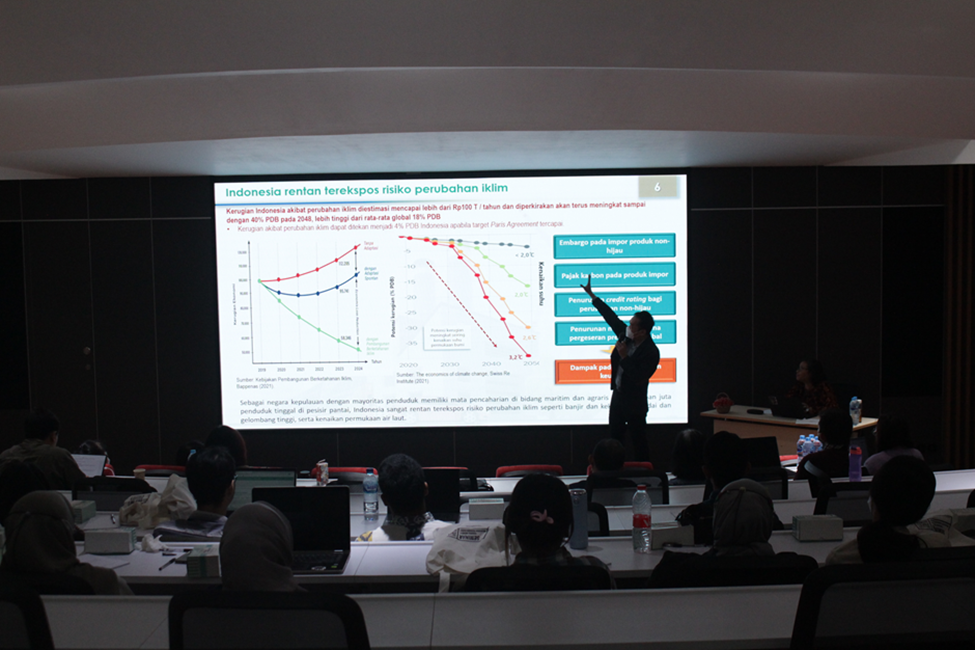| 2016 |
Ahmad Aswin Masudi |
An Analysis of Intra-ASEAN FDI Determinants in the Wake of ASEAN Economic Community |
Bina Ekonomi, 2016, 20 (2), 115-125 |
| 2016 |
Siwi Nugraheni |
Dimensi Ekonomi Pemanfaatan dan Pengelolaan Sumber Daya Air |
Majalah Parahyangan, Juli – September 2016 |
| 2016 |
Ivantia S Mokoginta
Miryam L. Wijaya |
Measuring Productivity Growth of Provinces in Indonesia: A Malmquist Productivity Index Data Envelopment Analysis |
Disajikan di The 15th International Convention of the East Asian Economic Association Sustainable and Inclusive Development in Asia and the Global Economy di Bandung pada 5 – 6 November 2016 dan dipublikasikan di CES Working Paper 01/2016 |
| 2016 |
Ivantia S. Mokoginta
Miryam L. Wijaya |
Measuring Provincial Economic Efficiency in Indonesia |
IRSA Book Series on Regional Development No. 14: Tourism and Sustainable Regional Development in Indonesia, 2016, 3 – 25 |
| 2016 |
Ivantia S Mokoginta
Miryam L. Wijaya |
Measuring Provincial Economic Efficiency in Indonesia |
IRSA Book Series on Regional Development No. 14: Tourism and Sustainable Regional Development in Indonesia, 2016, 3 – 25 |
| 2016 |
Chandra Utama
Shela Selviana Agesy |
The Effect of Macroeconomic Variables on the Yield Spread of Indonesian Government’s Bond |
Journal of Indonesian Applied Economics, 2016, 6(2), 155 – 175 |
| 2015 |
Siwi Nugraheni |
Mengembangkan Sektor Energi Indonesia 2015-2019 dan Peluang Memanfaatkan Forum G20 |
Quickwins dan Strategi Indonesia di G20: Mewujudkan Kemandirian Ekonomi dalam Konteks Ketidakpastian Global, 2015, Bandung: Fakultas Ilmu Sosial dan Ilmu Politik Universitas Katolik Parahyangan, bekerja sama dengan International NGO Forum on Indonesian Development (INFID) |
| 2015 |
Ivantia S Mokoginta |
Mengkonsolidasikan Kebijakan Keuangan Negara dan Kebijakan Fiskal |
Quickwins dan Strategi Indonesia di G20: Mewujudkan Kemandirian Ekonomi dalam Konteks Ketidakpastian Global, 2015, Bandung: Fakultas Ilmu Sosial dan Ilmu Politik Universitas Katolik Parahyangan, bekerja sama dengan International NGO Forum on Indonesian Development (INFID) |
| 2015 |
Januarita Hendrani |
Meningkatkan Kinerja Perdagangan Luar Negeri untuk Mendorong Pertumbuhan Ekonomi |
Quick Wins dan Strategi Indonesia di G20: Mewujudkan Kemandirian Ekonomi dalam Konteks Ketidakpastian Global, 2015, Bandung: Fakultas Ilmu Sosial dan Ilmu Politik Universitas Katolik Parahyangan, bekerja sama dengan International NGO Forum on Indonesian Development (INFID) |
| 2015 |
Miryam Lilian Wijaya
Chandra Utama
Charvin Kusuma |
Risiko Sistemik Perbankan Indonesia |
CES Working Paper 09/2015 |
| 2015 |
Ivantia S Mokoginta
Ria Marisa Stephanie |
Structural Breaks and Fiscal Sustainability of The Indonesian Government Budget |
Economic Journal of Emerging Markets, 2015, 7(1), 33-47 |
| 2015 |
Siwi Nugraheni
Ivantia Savitri Mokoginta
Difa D Asfari |
Towards Sustainable Development of Indonesia Extractive Industry |
Disajikan di The 5th IRSA International Institute di Bali pada 3 – 5 Agustus 2015 |
| 2014 |
Ivantia Savitri Mokoginta
Miryam BL Wijaya |
Efisiensi Pengelolaan Perekonomian Daerah dalam Mendorong Pertumbuhan Ekonomi di Daerah Provinsi |
CES, 2014 (dalam bentuk poster) |
| 2014 |
Miryam BL Wijaya
Ivantia Savitri Mokoginta |
Identifikasi Risiko Fiskal dalam Anggaran Pendapatan dan Belanja Negara Indonesia |
Lembaga Penelitian dan Pengabdian kepada Masyarakat Universitas Katolik Parahyangan, 2014 |
| 2014 |
Siwi Nugraheni
PC Suroso
Noknik Karliya Herawati
Januarita Hendrani
Anna F Poerbonegoro |
Pengembangan Pertanian Organik |
Research Report-Humanities and Social Science 2, 2014 |
| 2014 |
Siwi Nugraheni
PC Suroso
Noknik Karliya Herawati
Januarita Hendrani
Anna F Poerbonegoro |
Pengentasan Kemiskinan melalui Pengembangan Pertanian Organik |
CES, 2014 (dalam bentuk poster) |
| 2014 |
Siwi Nugraheni
PC Suroso
Noknik Karliya Herawati
Januarita Hendrani
Anna F Poerbonegoro |
Pengentasan Kemiskinan melalui Pengembangan Pertanian Organik |
CES, 2014 (dalam bentuk poster) |
| 2014 |
Noknik Karliya Herawati
Januarita Hendrani
Siwi Nugraheni |
Viabilitas Pertanian Organik dibandingkan dengan Pertanian Konvensional |
Research Report-Humanities and Social Science 2, 2014 |
| 2014 |
Siwi Nugraheni
Noknik Karliya Herawati
Januarita Hendrani |
Viability of Organic Farming: Case Study of West Java Province |
Disajikan di The 12th IRSA Conference di Makassar pada 2 – 3 Juni 2014 |
| 2013 |
Chandra Utama |
Pembiayaan Budget Defisit, Hutang, dan Tingkat Bunga: Suatu Perbandingan antara Emerging and Advanced Countries |
Bina Ekonomi, 2013, 17(2), 9 – 22 |
| 2013 |
Chandra Utama |
Pembiayaan Budget Defisit, Hutang, dan Tingkat Bunga: suatu Perbandingan antara Emerging and Advanced Countries |
Bina Ekonomi, 2013, 17(2), 9-22 |
| 2013 |
Siwi Nugraheni
Dwi Purnama |
Problems And Prospects Of Organic Farming In Indonesia: lesson From Five Districts In West Java Province |
Bina Ekonomi, 2013, 17 (1), 112-120 |
| 2012 |
Chandra Utama |
Transmisi Kebijakan Moneter melalui Jalur Perumahan |
Ekonomika-Bisnis, 2012, 3(1), 29 – 42 |
| 2012 |
Chandra Utama |
Housing Price Bubble: Penyebab dan Masalah yang Muncul Karenanya |
Bina Ekonomi, 2012, 16(2), 1 – 8 |
| 2012 |
Chandra Utama |
Peran Uang Beredar dan Tingkat Bunga dalam Pencapaian Target Kebijakan Moneter |
CES Working Paper 05/2012 |




